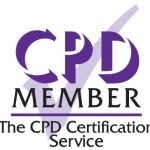

Manage data, including data manipulation and cleaning using STATA
Perform descriptive analysis and Perform Relation Analysis
Conduct modeling using STATA
Learn the basics of R
Learn data manipulation and organization using R
Perform relation analysis and interpretation of the results using R
Perform statistical modelling and interpretation of the results using R
Session 1:Introduction to STATA
Key components of STATA and STATA syntax
STATA commands and do-file
Opening and clearing a database
Compressing databases
Changing the working directory
Session 2: Data management
Data description, code-book, inspect and summarize
View, edit and label variables
Merge datasets/compare datasets/Transpose a dataset
Create and replace variables
Rename/Recode and drop variables
Replace/Fill in missing values
Destring and To string variables
Session 3: Descriptive statistics
Descriptive statistics for nominal and ordinal variables
Summary statistics for Interval and Ratio variables
Tabulation and tables
Correlations, covariances and confidence intervals
Graphics and data visualization
Session 4: Analyzing relationships between variables
One and two sample t-tests
Analysis of variance (ANOVA)
Hypothesis testing
Session 5: Regression Analysis
Scatter plots
Correlation analysis
Simple and multiple linear regression analysis
Ordinary Least Squares analysis
Interpretation of the results
Session 6: Modeling in STATA
Probit and Logit models and their variations
Poisson and Binomial models
Linear probability model
Marginal Effects
Data analysis and modelling using R and R Studio
Session 1: Introduction to R and R studio
Installing R studio and its packages
Key components of R and Core programming principles
Importing data into R
Exploring your dataset using R
Session 2: Descriptive statistics
Central tendencies: mean, median and mode
Variance, standard deviation, quantiles and quartiles
Graphics and Data visualization
Session 3: Relationship/Association Analysis
Correlation analysis
Regression analysis
Simple linear regression analysis
Multiple regression analysis
Ordinary Least Squares (OLS)
Analysis of variance (ANOVA)
Session 4: Probability and Hypothesis testing
One sample t-test
Two sample t-test
Paired samples t-test
Session 5: Statistical modelling
Logit model and its variations
Probit model and its variations
OLS regression model
Marginal effects and their interpretation


Click one of our representatives below to chat on WhatsApp or send us an email to info@humanitarianglobal.com